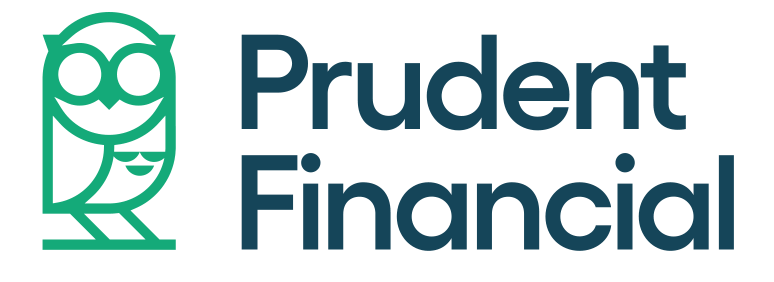
Covid-19 and your Finances
Two types of emergencies exist that can impact your financial situation. The first type of emergency is when you suddenly have to pay a large unexpected expense (i.e. car repair). The second type of crisis is when your income is unexpectedly reduced (i.e. job loss or drop in sales if self-employed).
For example, Caitlyn Baird made the following statement to CTV News “I was forced to evacuate Spain when the pandemic broke out there in March, causing me to fork over $3,000 for an emergency flight back to Canada as per the government’s orders. On top of that, I was laid off permanently as an Event + Office manager from a Toronto based tech start-up.”
April and Joseph Brunner are wedding photographers from Welland, Ont., who have seen their income from their photography business disappear. They made the following statement “We are likely going to lose an entire year’s worth of weddings, as well we cannot book new weddings for next year due to all the rescheduling. This means at least two years worth of income is up in the air. We have a young son and we were planning on growing our family next year, but now we cannot because of how much we will need to work and lack of financial stability.”
Covid’s Impact on Canadian Businesses
This is obviously a very stressful situation to be in and many are struggling to pay all expenses on time. Here are some snapshots of how it’s impacting Canadians.
- Almost one in three Canadians are concerned that they will never recover financially from the pandemic.
- Two in five Canadians feel they are in worse financial shape compared to pre-pandemic
- Half of young Canadians under 35 have burrowed to make up shortfall
- Roughly 52% of Canadians plan to spend less this holiday season
Although we cannot control scenarios that are much larger than us, we can control how we react to financial difficulties. Many Canadians are struggling financially and are seeking ways to pay expenses on time. Being optimistic about future outcomes and adopting healthy habits is key to ensuring a healthy mindset. The worst thing a person can do is rack up high interest credit card debt.
Three ways to reduce financial burden
Review spending habits – The best way to ensure you do not run into trouble is to have an emergency fund. When your income goes up, your first reaction may be to reward yourself. However, it can be the perfect opportunity to save for an emergency fund or future investments. Of course, high interest credit card debt should be paid off first to avoid penalties.
Since the pandemic has caused many social activities to stop it is the perfect opportunity to save. Consider putting money previously spent on entertainment, fitness classes and at bars into an emergency fund. One other solution is to cancel something that you can live without. For instance, you could opt to cancel your cable package for Netflix or another streaming service.
Consolidation Loan
A consolidation loan can be used to pay off high interest debt. The primary advantage is that you only have one monthly payment instead of multiple monthly debt payments. This makes it easier to keep up with payments and avoid high interest fees and penalties. The disadvantage for a debt consolidation loan is that many borrowers will require collateral. Additionally, if you had difficulty making payments on four or five credit cards and/or small loans you may still have trouble paying one large loan. You want to ensure the lender is allowing you the best combination of monthly payments tied to your current income and interest rates over the payback period.
A Worst Case Credit Card Example
The chart below shows how much interest it would cost if you had a $40,000 balance on credit card. This is based on 20% interest and and assumes you cannot afford to make monthly payments in full.
Source for Calculation: itools-ioutils.fcac-acfc.gc.ca/CCPC-CPCC/CCPC-CPCC-eng.aspx
|
Category |
If you only make Minimum Payment |
If you make Minimum Payment + $800 |
|
Balance |
$40,000 |
$40,000 |
|
Your monthly payment |
3% of the balance |
3% of the balance +$100 |
|
Total monthly payment |
$1200 |
$2000 |
|
Annual Interest Rate |
20% |
20% |
|
Time to zero balance |
33 years and 10 months |
3 years and 3 months |
|
Total Interest paid |
$49,740.60 |
$9,064.28 |
Does Debt Restructuring Make Sense?
Have you been impacted by Covid-19 and simply do not have the income to support monthly obligations? If you do not have assets or choose not to liquidate or use to get capital, it might be a good idea to consider either an informal or formal debt restructuring plan.
An informal debt restructuring plan involves having a professional debt consultant contact your creditors and negotiate a settlement on your behalf. The problem is that you’ll likely have to pay a consulting fee in addition to paying back debt.
Bankruptcy
The most well-known formal insolvency proceeding is bankruptcy. The Canadian Government describes bankruptcy as a legal process designed to relieve honest but unfortunate debtors of their debt. Bankruptcy is designed to help individuals have a fresh start after financial difficulty. Not being able to pay monthly bills on time and only making minimum payments on credit cards is not sustainable.
Consumer Proposal
A lesser known option than Bankruptcy is a Consumer Proposal. A Consumer Proposal is an offer to creditors to pay a percentage of what is owed or extend the amount of time to pay off debt. It can also be a combination of the above and creditors vote to accept or reject the proposal. A debtor will have to offer back more in a Consumer Proposal than Bankruptcy. This is because a Consumer Proposal allows a debtor to keep assets. To file a bankruptcy or consumer proposal you must meet with a licensed insolvency trustee (LIT).
The major downside to a Bankruptcy or Consumer Proposal is that your credit will be negatively impacted. But your credit score may have already been damaged by late or delinquent accounts on your file. Consumer Proposals stay attached to your credit rating for less time than bankruptcies upon completion.
In Conclusion
The Covid-19 Pandemic has had a massive impact on Canadians and their finances. If you, a family member or a friend are struggling to keep up with monthly obligations please know that help is available. Prudent Financial offers equity loans which can be used to consolidate debt for anyone regardless of credit situation. Also, Prudent has an in-house debt specialist who can assist you with your specific situation. You can reach us during office hours at (416) 223-9300 and speak with a loan officer to review your situation. Bright days are ahead if we all stay the course.
